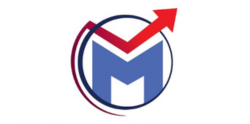How to Promote Events with Facebook Ads
How to Promote Events with Facebook Ads
Introduction
In today’s digital age, Facebook Ads have become an indispensable tool for event marketers looking to reach targeted audiences effectively. Whether you’re organizing a conference, workshop, webinar, or local meetup, leveraging Facebook’s powerful advertising platform can significantly boost event attendance and engagement. This comprehensive guide explores the step-by-step process of using Facebook Ads to promote your events successfully.
1. Understanding Your Event and Audience
Before diving into your Facebook Ads strategy, it’s crucial to clearly define your event’s goals and objectives. Ask yourself: What do you want to achieve with this event? Is it to increase attendance, generate leads, or build brand awareness?
Simultaneously, understanding your target audience is key. Develop detailed buyer personas based on demographics (age, gender, location), interests, and behaviors relevant to your event. This groundwork will inform every aspect of your Facebook Ads campaign—from ad creative to targeting strategies.
2. Setting Up Your Facebook Event Ad Campaign
To get started, ensure you have a Facebook Business Manager account set up. This centralized platform allows you to manage your ads, Pages, and ad accounts effectively. Within Business Manager, create a new ad campaign with the objective tailored specifically for events. Options like “Event Responses” are ideal for driving registrations and RSVPs directly from Facebook.
3. Crafting Compelling Ad Creative
The success of your Facebook Ads campaign heavily relies on captivating visuals and persuasive ad copy. Design visually appealing images or videos that convey key event details, such as date, location, and highlights. Your ad copy should be concise yet compelling, emphasizing the value attendees will gain from participating in your event. Incorporate a strong call-to-action (CTA) urging users to “RSVP Now” or “Learn More.”
4. Targeting Your Audience Effectively
Facebook offers robust targeting options to help you reach the right audience for your event. Utilize location targeting to focus on specific cities or regions where your event is relevant. Refine your audience further using demographics (age, gender), interests (related to event topics or industry), and behaviors (past event attendance or online activities).
For enhanced precision, leverage custom audiences (based on your existing contacts or website visitors) and lookalike audiences (modeled after your best customers) to expand your reach to similar individuals who are likely interested in your event.
5. Budgeting and Bidding Strategies
Determine a realistic budget for your event campaign based on your objectives and audience size. Facebook Ads allow you to set daily or lifetime budgets, giving you control over your spending. Choose bidding strategies aligned with your campaign goals—whether optimizing for event responses or maximizing reach within your budget. Monitor performance closely and adjust bids as needed to optimize ad delivery and cost-effectiveness.
6. Implementing Advanced Ad Features
Maximize the impact of your event campaign by integrating advanced Facebook Ad features. Install Facebook Pixel on your event registration page to track conversions accurately. This tool enables you to measure the effectiveness of your ads by monitoring registrations, ticket purchases, or other desired actions. Implement remarketing campaigns to engage with users who have shown interest but haven’t yet registered, encouraging them to complete the RSVP process.
Experiment with A/B testing different ad variations to identify which visuals, copy, or CTAs resonate best with your audience. Use insights from these tests to refine your ads and improve overall campaign performance.
7. Measuring Success with Facebook Ads Insights
Track key metrics throughout your campaign to gauge its success. Important metrics include the number of event responses, cost per response, and ROI generated from ticket sales or conversions. Facebook Ads Manager provides detailed insights into ad performance, allowing you to analyze which ads are driving the most registrations and where adjustments may be necessary.
Use these insights to make data-driven decisions, such as reallocating budget to top-performing ads or refining targeting criteria to reach a more engaged audience segment. Regularly review and report on campaign performance to stakeholders, highlighting achievements and areas for optimization.
8. Best Practices and Tips
- Timing is Key: Schedule your ads to coincide with peak engagement times for your target audience.
- Engage Consistently: Keep your audience engaged with event updates, countdowns, and sneak peeks to build anticipation.
- Social Proof: Showcase testimonials from past attendees or influencers to build credibility and encourage registrations.
Conclusion
Promoting events with Facebook Ads offers unparalleled opportunities to connect with your target audience and drive attendance. By understanding your event goals, crafting compelling ads, targeting effectively, and leveraging advanced features, you can maximize the impact of your campaigns and achieve successful outcomes for your events.
Related Posts
Leave a Reply Cancel reply
Categories
MahbubOsmane.com is reader-supported, some products displayed may earn us a commission if you purchase through our links. MahbubOsmane.com is a participant in the Amazon Services LLC Associates Program. Learn more.

